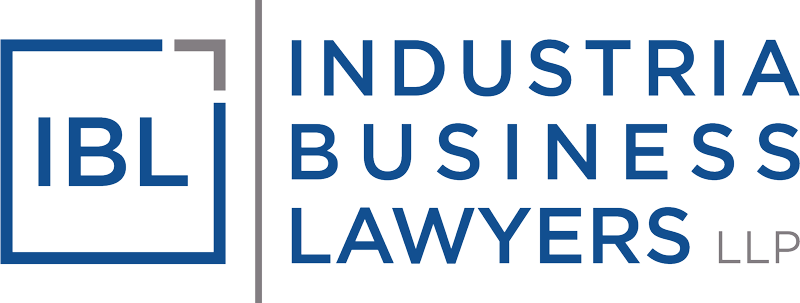Congratulations! You’ve taken the exciting leap into entrepreneurship. While your focus may be on innovation and chasing your vision, a solid understanding of the legal landscape is crucial for ensuring your venture’s success.
Think of legal compliance as the invisible foundation upon which you build your dream.
Overlooking these essential elements can lead to costly mistakes that hinder your growth or even halt your progress entirely.
This guide explores five of the most common legal mistakes entrepreneurs make and equips you with the knowledge to avoid them.
1. Choosing the Wrong Business Entity
The type of business entity you select has a significant impact on your taxes, liability, and overall operations. Limited Liability Companies (LLCs), S-Corporations (S-Corps), and C-Corporations (C-Corps) all offer distinct advantages and drawbacks. Don’t be tempted to go with the first option that pops up online. Instead, consult with an expert attorney who can guide you through the factors to consider, such as:
- Tax implications: How will your chosen entity impact your tax burden? Do you want to pay taxes on your business profits directly (pass-through taxation) or have your corporation pay taxes separately (double taxation)?
- Management structure: How do you envision managing your business? LLCs offer more flexibility in this area, while S-Corps and C-Corps have stricter ownership and management rules.
- Liability protection: In the unfortunate event of a lawsuit, an LLC shields your personal assets from liability, while owners of S-Corps and C-Corps may have some personal exposure.
Understanding these nuances and aligning your entity choice with your long-term goals is critical for setting your business on the right track.
2. Relying on Generic Online Contracts
Contracts are the lifeblood of any business relationship.
They outline the terms of agreements and protect both parties involved. However, using generic online templates is a recipe for disaster.
These one-size-fits-all documents often lack the necessary customization to address the specific needs of your unique business transactions. This can lead to unenforceable agreements, misunderstandings, and costly legal battles down the line.
Why are custom contracts essential?
- Tailored to your needs: A well-crafted contract reflects the specific details of your agreement, ensuring clarity and reducing the risk of misinterpretations.
- Protects your interests: Custom contracts safeguard your business by addressing potential issues like payment terms, intellectual property rights, and termination clauses.
- Adapts to your growth: As your business evolves, your contracts should too. Regular reviews and updates ensure they continue to align with your changing needs.
Invest in professional legal counsel to create customized contracts that empower you to navigate the complexities of business dealings with confidence.
3. Mixing Personal and Business Finances
Keeping your personal and business finances separate is not just good accounting practice, it’s also essential for legal and liability reasons.
Combining these funds can blur the lines between your personal assets and those of your company. This can have serious consequences, including:
- Piercing the corporate veil: If the court finds that you haven’t maintained a clear separation between your personal and business finances, they may pierce the corporate veil. This exposes your personal assets to liability for business debts.
- Tax complications: Commingling finances can make tax filing a nightmare and potentially lead to penalties from the IRS.
How to maintain financial separation:
- Open a dedicated business bank account: Use this account for all your business transactions, keeping your personal finances distinct.
- Maintain meticulous records: Document all income and expenses related to your business, creating a clear audit trail.
- Seek guidance from a financial professional: An accountant can help you establish a solid financial system for your business.
By adhering to these practices, you safeguard your personal assets and ensure the financial health of your company.
4. Neglecting Intellectual Property Protection
Your ideas are valuable! Intellectual property (IP) encompasses intangible assets like trademarks, patents, and copyrights that give your business a unique edge. However, many entrepreneurs overlook the importance of protecting these assets early on.
Why is IP protection crucial?
- Competitive advantage: Strong IP safeguards your brand identity, inventions, and creative works, giving you a competitive edge in the marketplace.
- Increased value: Protected IP can significantly enhance the value of your business, making it more attractive to investors or potential buyers.
- Enforcement options: Registration of trademarks, patents, and copyrights empowers you to take legal action against those who infringe on your IP rights.
Don’t wait until someone else capitalizes on your ideas. Take proactive steps to identify, register, and enforce your intellectual property rights. Consult with an IP attorney to understand the best course of action for your specific assets.
5. Ignoring Privacy Laws and Cybersecurity
In today’s digital age, customer trust hinges on your commitment to data security and privacy. Failing to comply with relevant privacy laws and neglecting cybersecurity measures can have devastating consequences.
The risks of non-compliance:
- Data breaches: Cyberattacks can expose sensitive customer information, leading to financial penalties, reputational damage, and loss of customer trust.
- Legal repercussions: Failure to adhere to privacy regulations, like the General Data Protection Regulation (GDPR) or the California Consumer Privacy Act (CCPA), can result in hefty fines and legal action.
Essential steps for data protection:
- Stay informed: Familiarize yourself with the privacy laws that govern your online business activities.
- Implement robust cybersecurity measures: Invest in data encryption, multi-factor authentication, and regular security audits to safeguard customer data.
- Maintain clear privacy policies: Develop and regularly update privacy policies that outline how you collect, use, and protect customer data. Transparency is key to building trust with your customers.
By prioritizing data security and privacy compliance, you demonstrate your commitment to responsible business practices and safeguard your company’s future.
Conclusion
Building a successful business venture requires a multifaceted approach. While innovation and passion are essential drivers, a solid understanding of the legal landscape is equally important.
By avoiding the common pitfalls outlined above and seeking professional guidance when necessary, you can navigate the legal complexities of entrepreneurship with confidence, allowing you to focus on what you do best – growing your business and achieving your dreams.

